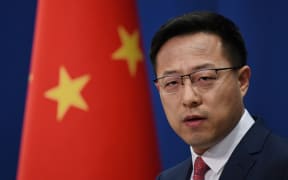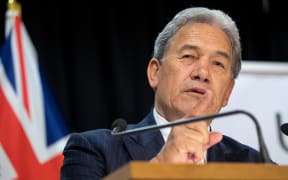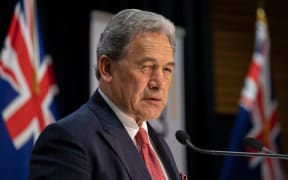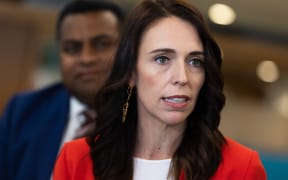New Zealand is part of a coalition of 62 countries backing an Australian push for an investigation into the origin of the Covid-19 outbreak in China.
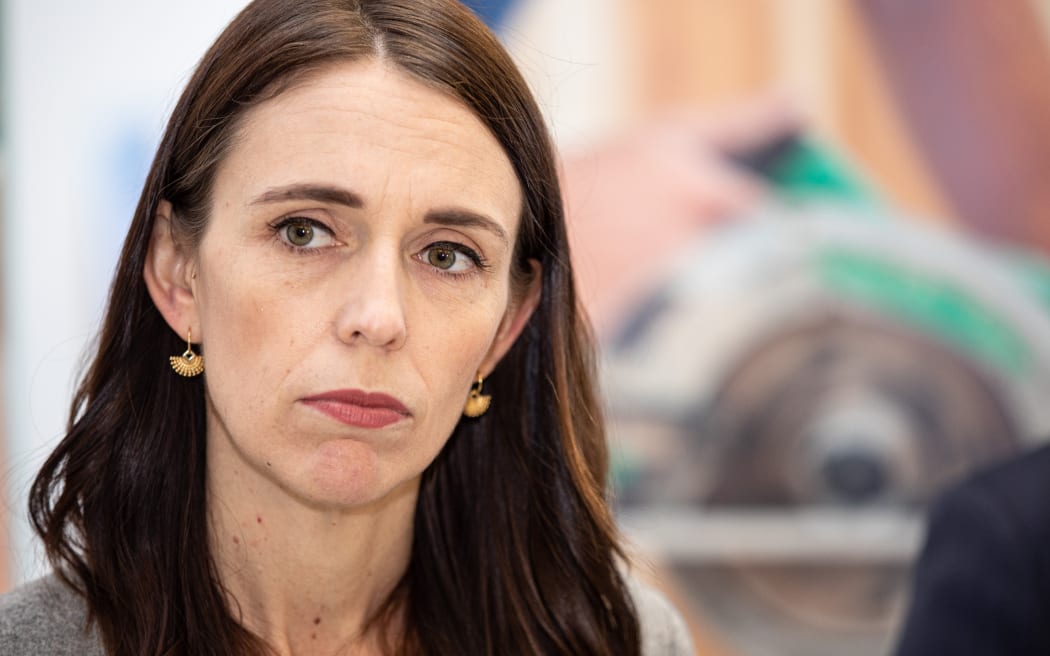
Prime Minister Jacinda Ardern. Photo: RNZ / Dom Thomas
Prime Minister Jacinda Ardern said she didn't believe there was any blame to be laid, but the international community was right to be asking questions, she told Morning Report.
"We have agreed that we should look at these key learnings," Ardern said.
"The idea that this one-in-100-year event that has caused global economic shock, has had a devastating impact on the health systems and the lives and livelihoods of people around the world - the idea that we wouldn't want to look at that and learn from that seems surprising to me. Of course, we would.
"We're not interested in this for blame, we're interested in it for learning."
She reiterated the government's stance that Taiwan should have observer status at the World Health Organisation (WHO), "however that does not change the position we've had since 1972 around the one-China policy".
A coalition of 62 countries has backed a joint Australian and European Union push for an independent inquiry into the coronavirus outbreak ahead of a crucial World Health Assembly (WHA) meeting on Monday in Geneva.
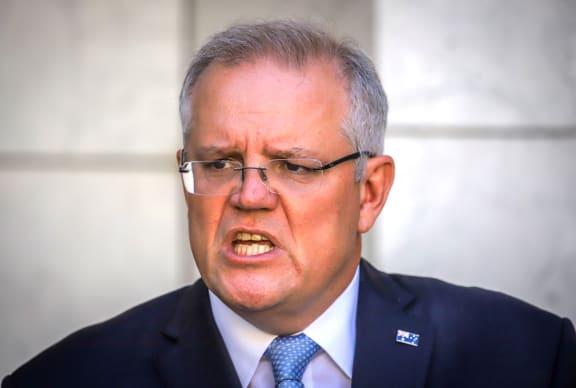
Australian Prime Minister Scott Morrison. Photo: AFP
The Morrison Government has now swung its diplomatic firepower behind the European Union, which has also been pressing for an investigation while taking a more conciliatory line with Beijing.
European nations and Australia have been rallying support for a draft EU motion which calls for an "impartial, independent and comprehensive evaluation" of "the WHO-coordinated international health response to Covid-19".
As of Sunday evening, Canberra time, 62 nations - including Indonesia, Japan, South Korea, Turkey, Russia, South Africa and the United Kingdom - had backed the motion.
The motion does not specifically mention China or the city of Wuhan where the outbreak is believed to have begun.
At this stage, neither China nor the US have backed the motion.
EU foreign affairs spokesperson Virginie Battu-Henriksson said the organisation was focused on reaching a consensus for an inquiry.
"Of course, we need to have the support of all the major players, and China is one of them," she told the ABC.
Meanwhile, US diplomats have been pressing for tougher language that specifically calls for a probe into how the virus started in the Chinese city of Wuhan.
US President Donald Trump and Secretary of State Mike Pompeo have both furiously denounced China's initial response to the virus, accusing it of covering up the initial outbreak and allowing it to spread around the world.
See all RNZ coverage of Covid-19
National's Foreign Affairs spokesperson Gerry Brownlee said he supported the desire to learn lessons, but the government needed to tread carefully.
He said it would be a difficult balance ensuring an investigation did not turn into a 'witch hunt'.
"What I worry about is some kind of Trump-like escalation of tension, which is unnecessary in an environment where all anybody wants to know is how to we prevent this happening again," he said.
Brownlee said he worried that the tone of some of Foreign Minister Winston Peters recent comments, including telling the Chinese Ambassador she should "listen to her master", were not respectful.
"At a time like this where the whole world is grappling with a problem, the sort of normal diplomatic respect that should be shown should be far more to the fore.
"We are a country that right now has got a very big trade with China and I think showing a degree of respect, a high degree of respect, is just the sort of reasonable thing that you would do.
"In the case of Winston Peters, he's simply looking to grab his 5 percent so he survives in the coming election", Brownlee said.
Trade expert Charles Finny, a partner at Saunders Unsworth, was not concerned about any retaliation from China.
"It doesn't seem to be the kind of investigation that maybe one large player has been suggesting, this is something that's far more moderate in its approach," he said.
Finny said Australia's relationship with China was much different to New Zealand's.
"[Their] relationship right now is a whole lot more complex than ours, and we should not be assuming that just because there might be something happening in Australia-China trade relations that it would happen automatically to New Zealand.
"The other point I'd make is that overnight it seems that China seems to be offering a bit of an olive branch to Australia in some of its public comments, so things may not be as bad as some are interpreting," he said.
Finny said New Zealand has been consistent in its approach to Taiwan, and he did not think China would be upset by New Zealand's stance.
"I thought the Prime Minister was spot on with her comments this morning. I'd be very surprised if the Chinese were in anyway disconcerted by her comments," Finny said.
- with additional reporting by ABC
